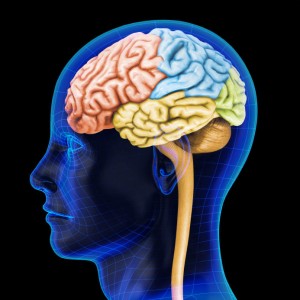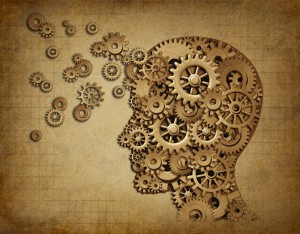Great masses of gray and white cumulus ascend thousands of feet over the partially shadowed lines of the foothills at the entrance to the canyon. As often happens after a dreary day of rainless, featureless clouds, the morning brings an astounding beauty to the hills and clouds.
 The few vehicles along the normally busy throughway seem to slow down, but standing there, I wonder if I’m alone in seeing and feeling the undeniable holiness. It’s not centered on me, but flows into and through the quiet brain of a human being—a neural node of awareness that encompasses everything, from stars to cars.
The few vehicles along the normally busy throughway seem to slow down, but standing there, I wonder if I’m alone in seeing and feeling the undeniable holiness. It’s not centered on me, but flows into and through the quiet brain of a human being—a neural node of awareness that encompasses everything, from stars to cars.
An unseen meadowlark sings its varied song across the road, providing the perfect accompaniment to a 90-degree view of the hills and clouds. It is a blessing beyond words, beyond measure, which not even the ugly row of ‘monster houses’ at the mouth of the canyon can mar or diminish.
Does the completely quiet human brain, having attended, without self-centeredness and self-concern, to its movement so fully and intensely in the mirror of self-knowing that the entire mechanism of thought falls silent, become a focal point of ongoing creation? Is the very existence of a brain as ours, on this or any other planet where evolution has the right conditions and enough time for such a brain to evolve, the intrinsic intent within the cosmos? And is the human brain, fully awakening its capacity for awareness, the cosmos aware of itself?
Questions that even hint of teleology (the idea that the universe has any kind of goal or purpose, whether fluid or fixed, whether intrinsically in its nature or extrinsically via a Supreme Being) are verboten to scientists and most philosophers. But though such questions don’t belong in science, they fit with philosophy’s purview, and are a natural byproduct of a contemplative’s mystical experiencing.
The external movement of knowledge has its place, but the so-called mystic’s experiencing of sublimity and sacredness has nothing to do with knowledge. We have to set aside scientific and experiential knowledge for a portion of each day, like closing an interesting book before going to sleep—only in this case we set aside the book of human knowledge and personal experience in order to awaken.
‘Mystic’ is just a word, often a derogatory label in this dark age of science and reason for a person who regularly goes beyond the increasingly untenable two-dimensional world of thought and experience. But children are natural born mystics, until all feeling for mystery is beaten, bred, or belittled out of them.
Being a mystic does not mean being mysterious, much less mystifying. Nor, in my view, does it have anything to do with supposedly supernatural realms, beyond the reach of human knowledge and understanding. Knowledge and understanding are two different things, to be sure, and knowledge has to leave off for understanding to grow. But a mystic’s experiencing has to stand the test of reason, and be repeatable in others (paradoxically, even as it is always new), or it’s rightly open to the charge of fantasy.
with supposedly supernatural realms, beyond the reach of human knowledge and understanding. Knowledge and understanding are two different things, to be sure, and knowledge has to leave off for understanding to grow. But a mystic’s experiencing has to stand the test of reason, and be repeatable in others (paradoxically, even as it is always new), or it’s rightly open to the charge of fantasy.
In a sense, science and mathematics are the teleologies, because they are trying to reach some goal. But the universe-as-mechanism is a projection of the human mind. Even the universe-as-mathematics is projection, since in mathematics all equations must be solved for x, while actuality is never solved, and x is always unknown, open and contingent.
That is the nature of creation, which did not just occur 14.7 billion years ago with the Big Bang, but is recapitulated each moment in the universe. Creation and destruction, like life and death, are inseparable, enfolded in the essence of all energy and matter.
Therefore the universe is in a constant state of creation. Only man is fixed, and being fixed in his anthropocentrism, he moves in opposition and conflict to creation.
We cannot know what God is, or even, with certainty, that it is. But we do know, even without looking in the mirror, that there is evil. And since evil, which is man-made, so methodically hates goodness and so vehemently opposes creation, and since it and its conduits are so clearly the antithesis of love, we can presume, though often with faltering faith, that there is something infinitely greater, which our minds cannot conceive and with which our hearts can only feebly commune.
The mirror for humans, and humankind, is not an even larger Hubble telescope to orbit the earth, detecting the light and potential life of earth-like planets light years away. As fascinating as it would be to find life, much less intelligent life (though using man as the measure for intelligence has become the nadir of folly), the true mirror is right here on earth, in nature and in our own capacity for self-reflection.
We are afraid of catching glimpses, much less full exposures of ourselves as we truly are, in physical or metaphysical mirrors. Building a big enough space mirror (though calling a telescope a mirror is a misnomer) to find a thousand earth-like planets will not stop man from plundering this beautiful planet.
Man appears to be a monumental mistake of evolution until we look in the mirror within and see that we are man, and cease becoming more of what we’ve been. Then, with attention, stillness and insight of being, the mistake of unending separation ends.
Martin LeFevre

